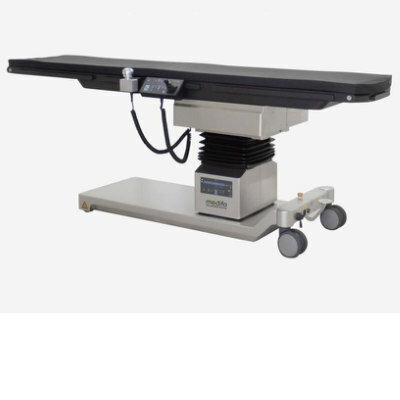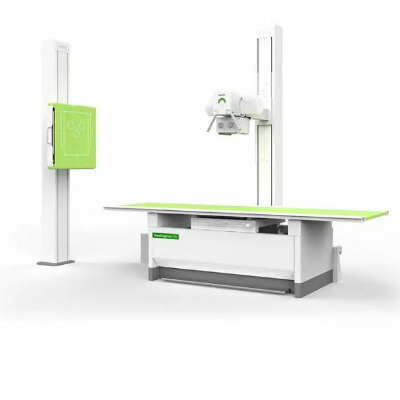Imaging Technology Provides Ground-Breaking New Approach for Diagnosing and Treating Bowel Cancer
|
By MedImaging International staff writers Posted on 20 Mar 2024 |

Biopsies, the current method for diagnosing bowel cancer, are invasive and come with risks like possible infection. While precision medicine has the potential to revolutionize cancer diagnosis and treatment, the development of accurate, informative, and patient-friendly diagnostic techniques is vital for its success. Now, new research has revealed that PET (Positron Emission Tomography) imaging could provide a ground-breaking approach to diagnosing and treating bowel cancer, enabling the application of precision medicine to oncology.
New research from the University of Glasgow (Scotland, UK) has found that PET imaging technology could revolutionize bowel cancer diagnosis and treatment. PET scans can examine the entire bowel and study tumors internally, avoiding the need to remove and examine tumor tissue externally. This technique uses special tracers to produce three-dimensional images of the body's interior, highlighting areas of abnormal cell activity. The technology could align bowel cancer treatment with precision medicine, ensuring patients receive the most effective treatments for their specific condition. Moreover, undergoing multiple PET scans could allow physicians to monitor the cancer's progress and the treatment's effectiveness over time.
The Glasgow team utilized existing genetic information about bowel cancer to identify distinct tumor characteristics through PET imaging. They found that employing multiple PET tracers, instead of just one, could differentiate between various types of bowel cancer in mice, based on their genetic makeup. This approach could lead to personalized patient care, as treatments could be customized according to each patient's specific cancer type. Since patients' bowel cancers can have unique mutations, such as in the KRAS, APC, and TGFB genes, which produce different imaging signatures, PET imaging has the potential to quickly identify the type of bowel cancer a patient has. This could significantly expedite access to the most suitable treatment for their disease, marking a significant step forward in the application of precision medicine to oncology.
“Precision medicine has the potential to revolutionize cancer diagnosis and treatment. However, the development of accurate, informative, and patient-friendly diagnostic techniques is crucial for its success,” said Dr. David Lewis, of the Cancer Research UK Scotland Institute and the University of Glasgow, who led the research. “PET imaging offers a promising alternative, with the ability to survey the entire cancer landscape, allowing us to examine tumors in more detail while they are still growing.”
Related Links:
University of Glasgow
Latest General/Advanced Imaging News
- New AI Method Captures Uncertainty in Medical Images
- CT Coronary Angiography Reduces Need for Invasive Tests to Diagnose Coronary Artery Disease
- Novel Blood Test Could Reduce Need for PET Imaging of Patients with Alzheimer’s
- CT-Based Deep Learning Algorithm Accurately Differentiates Benign From Malignant Vertebral Fractures
- Minimally Invasive Procedure Could Help Patients Avoid Thyroid Surgery
- Self-Driving Mobile C-Arm Reduces Imaging Time during Surgery
- AR Application Turns Medical Scans Into Holograms for Assistance in Surgical Planning
- CT Coronary Calcium Scoring Predicts Heart Attacks and Strokes
- AI Model Detects 90% of Lymphatic Cancer Cases from PET and CT Images
- Breakthrough Technology Revolutionizes Breast Imaging
- State-Of-The-Art System Enhances Accuracy of Image-Guided Diagnostic and Interventional Procedures
- Catheter-Based Device with New Cardiovascular Imaging Approach Offers Unprecedented View of Dangerous Plaques
- AI Model Draws Maps to Accurately Identify Tumors and Diseases in Medical Images
- AI-Enabled CT System Provides More Accurate and Reliable Imaging Results
- Routine Chest CT Exams Can Identify Patients at Risk for Cardiovascular Disease
- AR Preoperative Surgical Planning Software Makes Surgery Safer and More Efficient

Channels
Radiography
view channel
Novel Breast Imaging System Proves As Effective As Mammography
Breast cancer remains the most frequently diagnosed cancer among women. It is projected that one in eight women will be diagnosed with breast cancer during her lifetime, and one in 42 women who turn 50... Read more
AI Assistance Improves Breast-Cancer Screening by Reducing False Positives
Radiologists typically detect one case of cancer for every 200 mammograms reviewed. However, these evaluations often result in false positives, leading to unnecessary patient recalls for additional testing,... Read moreMRI
view channel
PET/MRI Improves Diagnostic Accuracy for Prostate Cancer Patients
The Prostate Imaging Reporting and Data System (PI-RADS) is a five-point scale to assess potential prostate cancer in MR images. PI-RADS category 3 which offers an unclear suggestion of clinically significant... Read more
Next Generation MR-Guided Focused Ultrasound Ushers In Future of Incisionless Neurosurgery
Essential tremor, often called familial, idiopathic, or benign tremor, leads to uncontrollable shaking that significantly affects a person’s life. When traditional medications do not alleviate symptoms,... Read more
Two-Part MRI Scan Detects Prostate Cancer More Quickly without Compromising Diagnostic Quality
Prostate cancer ranks as the most prevalent cancer among men. Over the last decade, the introduction of MRI scans has significantly transformed the diagnosis process, marking the most substantial advancement... Read moreUltrasound
view channel
Deep Learning Advances Super-Resolution Ultrasound Imaging
Ultrasound localization microscopy (ULM) is an advanced imaging technique that offers high-resolution visualization of microvascular structures. It employs microbubbles, FDA-approved contrast agents, injected... Read more
Novel Ultrasound-Launched Targeted Nanoparticle Eliminates Biofilm and Bacterial Infection
Biofilms, formed by bacteria aggregating into dense communities for protection against harsh environmental conditions, are a significant contributor to various infectious diseases. Biofilms frequently... Read moreNuclear Medicine
view channel
New SPECT/CT Technique Could Change Imaging Practices and Increase Patient Access
The development of lead-212 (212Pb)-PSMA–based targeted alpha therapy (TAT) is garnering significant interest in treating patients with metastatic castration-resistant prostate cancer. The imaging of 212Pb,... Read moreNew Radiotheranostic System Detects and Treats Ovarian Cancer Noninvasively
Ovarian cancer is the most lethal gynecological cancer, with less than a 30% five-year survival rate for those diagnosed in late stages. Despite surgery and platinum-based chemotherapy being the standard... Read more
AI System Automatically and Reliably Detects Cardiac Amyloidosis Using Scintigraphy Imaging
Cardiac amyloidosis, a condition characterized by the buildup of abnormal protein deposits (amyloids) in the heart muscle, severely affects heart function and can lead to heart failure or death without... Read moreImaging IT
view channel
New Google Cloud Medical Imaging Suite Makes Imaging Healthcare Data More Accessible
Medical imaging is a critical tool used to diagnose patients, and there are billions of medical images scanned globally each year. Imaging data accounts for about 90% of all healthcare data1 and, until... Read more
Global AI in Medical Diagnostics Market to Be Driven by Demand for Image Recognition in Radiology
The global artificial intelligence (AI) in medical diagnostics market is expanding with early disease detection being one of its key applications and image recognition becoming a compelling consumer proposition... Read moreIndustry News
view channel
Bayer and Google Partner on New AI Product for Radiologists
Medical imaging data comprises around 90% of all healthcare data, and it is a highly complex and rich clinical data modality and serves as a vital tool for diagnosing patients. Each year, billions of medical... Read more





















